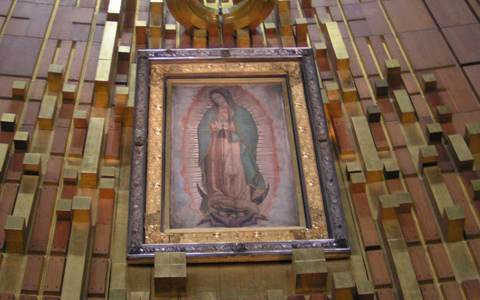
In different parts of the United States and other parts of the world, we are reaching what many are calling “Phase 2” in the response to the coronavirus pandemic. Various restrictions are being gradually rescinded, some businesses reopened, supplementary emergency hospitals closed, panic and fear lessened and normal parts of life restored.
But we are far from out of danger. The shockingly drastic shortage of tests for the virus or its antibodies leave us blind as to who has it or had it and who may be asymptomatically infectious or immune. There’s still no effective treatment or vaccine. Nursing homes have gone from safe, caring havens to among the country’s most perilous places. Obituary sections in newspapers remain the thickest most of us have ever seen.
The general flattening of the curve in the most afflicted locations, however, gives us a chance to take stock of where we’ve been, draw lessons, and, where fitting, make adjustments in medical, economic, social and political approaches. It’s also a good time for the Church to make such a review.
The Church is called by Jesus to be the salt of the earth, the light of the world and a leaven that makes the whole social dough rise. Jesus warned us, however, not to let our salt become insipid, our light hidden, and our leaven worldly (Mt 5:13-16; Mk 8:15). Many may not acknowledge or appreciate this triple vocation the Church has received for the good of all, but the Church must not forget it or fail to live it.
This article originally appeared in The Anchor, the weekly newspaper of the Diocese of Fall River, Mass, on May 1, 2020 and appears here with the kind permission of the author.
There are many lessons that the Church can learn from the first phase of the response to the coronavirus, but the most important and urgent is about the harm that has come, and may worsen, from the Church’s having been defined in various jurisdictions as a “non-essential” service.
It’s not surprising that those who do not believe in God might think that the life of faith is non-essential.
It’s similarly unremarkable that Catholics who no longer practice the faith, who do not deem it essential to their life, might also reckon it unnecessary in the lives of others.
But that the Church — clergy, religious and faithful alike — would not protest thunderously against such a gross mischaracterization, in which access to liquors stores and booze is considered more essential to life than access to Church and the sacraments, is disturbing. More troubling still is in some places the Church has behaved as if she believes that the services she offers Catholics and others are indeed non-essential.
That’s the lesson that is unwittingly taught when the Church in some locales has made the decision to lock churches and forbid all access to the Sacraments, except for priests, even when such decisions were not required by public mandate. Sacramental life cannot be considered essential when the Church acts as if it’s not needed even in a crisis, as if live-streamed Masses, spiritual communions, acts of perfect contrition, and the availability of plenary indulgences are adequate long-term substitutes.
That lesson is reinforced when such decisions are made as if they’re not particularly vexing.
It’s cemented when certain Church leaders insist that even practical solutions fully in alignment with medical and government directives on safety be shut down, like drive-in Masses, confessions at safe distances in parking lots, anointing of those dying of non-communicable diseases, all baptisms, weddings, funerals — even with only a few masked family members properly distanced — and when they provide no opportunity at all to pray before the Blessed Sacrament in Church.
These measures are not the situation everywhere, but they are not uncommon.
It should go without saying that the Church should vigorously cooperate with public authorities to promote public safety and protection. The Church should take special care, out of love, to keep from harm our elderly faithful and priests and those with conditions that make them particularly vulnerable. That’s why so many of the decisions taken by Church leaders — removing the Sunday Mass obligation, stopping the sign of peace, the distribution of the Precious Blood, and communion on the tongue, and following civil guidelines in terms of the number of people in a closed space, social distancing, and regular cleansing — are wise and just.
But there’s a difference in kind, and not just in degree, between prudent, even drastic restrictions and outright bans. A restriction bears witness that there is a tension between crucial competing values, namely the good of public safety and the essential service of the Sacraments, and therefore limits on various aspects of sacramental access must be implemented for public safety in an emergency circumstance. A ban, however, shows that there’s really no competition and that ultimately public safety alone is essential.
Some leaders in those places that have forbidden access to the Sacraments to the faithful have more or less admitted this, stating that the highest priority of the Church at this time is “people’s safety” or “keeping people home” lest they unknowingly catch or transmit Covid-19. Such decisions have been applauded by many of the faithful who think that the risks of transmission and lethality associated with the coronavirus are so severe that anything short of a total ban is an appalling lack of love of neighbor, anti-life and potentially suicidal and homicidal. But the same characterizations are generally not ascribed to going to the supermarket, walking one’s dog, or getting stamps at the post office. The minimal risk assumed in such activities is justified because such activities are deemed either essential or important enough to take the risk.
The Church’s concern for people involves care for the whole person, body and soul. We provide three essential services: the proclamation of the Word of God, the celebration of the sacraments, and the exercise of charity. As followers of the One who taught us that man does not live on bread alone, we must beware of materialist presumptions that prioritize, and treat as essential, only the good of the body.
It is noteworthy that in those places where access to Church and the sacraments has been forbidden, the Church’s works of mercy — services for the poor, especially food distribution centers — have not been shut down. That’s the right decision, because such care is essential and the risks associated with this masked-and-gloved, socially-distanced charity can be managed. The idea, however, that we can find the balance between safety and love of neighbor in the Church hall, but not between safety and love of God in the Church itself, is not credible.
The best way to discover this balance in practice is through permitting the creativity of priests and faithful who are zealous both to protect those entrusted to them and to provide them with access to Christ in prayer and the Sacraments. This has happened in various dioceses where restrictions, not overprotective bans, are the norm.
That’s where drive-in Masses originated so that people can attend Mass safely in their vehicles, and where priests have learned how to keep effective order while celebrating “private” or live-streamed Masses with small numbers of faithful.
That’s where front porches, carports, and parking lots have turned into makeshift confessionals.
That’s where priests have been opening up their Churches for adoration and processing through their parishes with the Blessed Sacrament.
That’s where, in order to protect their elderly priest brothers, groups of younger priests have gotten together to form anointing teams, learning to anoint Covid-19 patients’ feet with oiled q-tips while dressed from head to toe in personal protective equipment.
Such pastoral creativity would only expand if priests and faithful everywhere were given the opportunity to brainstorm, together with the light of the Holy Spirit, to come up with workable solutions, in line with guidelines of public safety, to provide greater access to the sacraments for those starving for them.
As we approach this second phase of the pandemic, it’s time to let this creativity spread, because in times of crisis, what God provides humanity through the Church is as essential a service as ever.
Help us spread the Gospel! Please share this post on Facebook and other social media.













